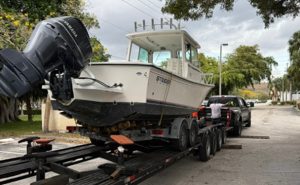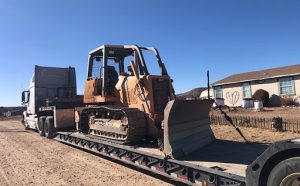Why California Auto Transport Companies Are Essential for Your Next Move
California auto transport companies handle thousands of vehicle shipments monthly, making them your best bet for reliable, cost-effective car shipping. Here are the top services you can expect:
Top California Auto Transport Services:
- Open carrier transport – Most popular option, 97-98% of customers choose this
- Enclosed transport – Premium protection for luxury and classic vehicles
- Door-to-door delivery – Pickup and delivery at your location
- Expedited shipping – Faster transit when time is critical
- Inoperable vehicle transport – Special equipment for non-running cars
- Military/student discounts – Savings ranging from $50-$100
California is one of the most active auto transport markets in the country, with over 1.2 million vehicles shipped annually to and from the state. The Golden State’s unique geography, strict emissions standards, and high shipping volume create specific challenges that experienced carriers know how to handle.
Whether you’re relocating for work, buying a car online, or need seasonal transport, California’s established network of carriers and brokers offers competitive pricing and reliable service. Average costs range from $0.60-$1.50 per mile depending on distance, with cross-country routes like California to Texas averaging around $1,200.
Distance affects pricing significantly:
- Short distances (1-500 miles): $1.00-$1.50 per mile
- Medium distances (500-1,000 miles): $0.75-$1.00 per mile
- Long distances (1,000+ miles): $0.60-$0.75 per mile
I’m William Meyer, and I’ve coordinated over 15,000 vehicle transports nationwide, including countless shipments with California auto transport companies across routes from San Diego to Seattle and Los Angeles to Miami. My experience has taught me that choosing the right carrier makes all the difference between a smooth move and a stressful nightmare.

Why This Guide Matters
Moving a vehicle across state lines or even within California can feel overwhelming, but it doesn’t have to be. We’ve seen too many customers get burned by unreliable carriers or surprise fees that weren’t disclosed upfront. This guide gives you the insider knowledge to avoid those pitfalls and choose a transport company that prioritizes pain-free planning, safety first, and budget control.
California’s auto transport market is unique – the state’s high gas prices directly impact shipping costs, and carriers must steer everything from earthquake zones to wildfire evacuation routes. Understanding these factors helps you make informed decisions and set realistic expectations for your shipment.
California Auto Transport Companies: How the Industry Works
The auto transport industry operates on a broker-carrier model that’s similar to how Uber connects drivers with passengers. Most California auto transport companies you’ll encounter are brokers who use load boards to match your shipment with available carriers. This system works because finding a direct-route trucking company is like finding a needle in a haystack – brokers have access to over 30,000 carriers nationwide.
Here’s how the process typically works: You get a quote from a broker, they post your shipment on a load board, and carriers bid on your transport. The broker then assigns your vehicle to a qualified carrier who meets federal requirements including FMCSA licensing and minimum cargo insurance of $750,000 to $1,000,000.
California adds another layer of complexity with strict DMV registration requirements and smog standards. Carriers operating in the state must understand these regulations, especially when transporting vehicles that need to pass emissions tests or meet specific registration deadlines. More info about car-shipping basics
The popularity of open versus enclosed transport tells an interesting story – approximately 97-98% of customers choose open carriers because they’re more affordable and widely available. Enclosed carriers represent fewer than 3% of all transport trucks on the road, which explains why they cost significantly more and require longer lead times.
What Sets California Auto Transport Companies Apart
California auto transport companies have distinct advantages that make them particularly effective for West Coast shipments. The state’s port access gives carriers multiple routing options, especially for vehicles heading to or from Hawaii and international destinations. Los Angeles and Long Beach ports handle massive volumes of vehicle imports and exports, creating established logistics networks that benefit domestic shipping too.
California’s sheer shipping volume – over 1.2 million vehicles annually – means carriers frequently run routes to and from the state. This high demand translates to better availability and competitive pricing for customers. Major highways like I-5, CA-99, and US-101 create natural shipping corridors that experienced carriers know intimately.
However, California’s strict smog standards create unique challenges. Vehicles must pass biennial emissions tests, and carriers need to understand timing requirements to avoid registration delays. We’ve seen customers get caught off-guard when their newly shipped vehicle couldn’t be registered due to smog compliance issues.
California’s natural disaster risks also set local carriers apart. Experienced companies have contingency plans for wildfire evacuations, earthquake damage, and mudslide route closures. They understand that flexibility isn’t just convenient – it’s essential for protecting your vehicle and maintaining realistic delivery schedules.
Evaluating California Auto Transport Companies for Reliability
Smart customers always verify a company’s credentials before booking. Start by checking their DOT and MC numbers through the Federal Motor Carrier Safety Administration database. Licensed carriers must display these numbers prominently and maintain current insurance certificates.
Online reviews reveal patterns that single testimonials can’t capture. Look for consistent themes in customer feedback – do people praise communication, or complain about surprise fees? A 4.7-star rating from over 19,000 reviews tells a different story than a 5-star rating from 50 reviews.
Inspection protocols separate professional carriers from fly-by-night operations. Reputable companies conduct thorough vehicle inspections at pickup and delivery, documenting existing damage with photos and detailed reports. This documentation protects both you and the carrier if damage claims arise.
Zero-deposit policies indicate confidence in service quality. Companies that demand upfront payment often struggle with carrier reliability – they need your money before they know if they can actually fulfill the shipment. Professional brokers typically charge nothing until a carrier is assigned and ready for pickup.
Carrier tracking tools have become standard among top-tier companies. Real-time updates via text or email keep you informed without requiring constant phone calls. This transparency builds trust and helps you plan around delivery schedules. Scientific research on vehicle regulations
Service Options That Fit Your Ride

The beauty of California’s mature auto transport market lies in its service variety. Open carriers handle the vast majority of shipments – they’re cost-effective, widely available, and perfectly adequate for standard vehicles. These carriers can transport 8-12 vehicles simultaneously, which keeps individual shipping costs reasonable.
Enclosed trailers offer maximum protection for high-value vehicles. They shield cars from weather, road debris, and prying eyes, making them ideal for classic cars, luxury vehicles, or anything worth more than $50,000. The trade-off is higher cost and longer lead times since enclosed carriers are less common.
Expedited pickup services cater to urgent timelines. While standard pickup typically takes 1-5 days from booking, expedited service can arrange pickup within 24-48 hours. This premium service costs more but provides peace of mind when time is critical.
Inoperable vehicle transport requires specialized equipment like winches or hydraulic lifts. Non-running cars incur additional fees, typically $150-$300, because they require extra time and equipment to load safely. Always disclose if your vehicle doesn’t run, steer, or brake properly.
Military and student discounts acknowledge the unique challenges these groups face. Military personnel often receive $50-$100 discounts on PCS moves, while students shipping cars to college can access similar savings. These discounts recognize the financial constraints and tight timelines these customers often face.
Open vs. Enclosed: Which Should You Choose?
| Factor | Open Carrier | Enclosed Carrier |
|---|---|---|
| Cost | Lower ($0.60-$1.50/mile) | Higher (50-100% premium) |
| Protection | Basic (weather exposure) | Maximum (fully enclosed) |
| Availability | Excellent (97% of carriers) | Limited (3% of carriers) |
| Ideal For | Standard vehicles under $30k | Luxury, classic, exotic cars |
| Lead Time | 1-5 days pickup | 1-2 weeks pickup |
| Capacity | 8-12 vehicles per trailer | 2-6 vehicles per trailer |
The decision often comes down to vehicle value and personal risk tolerance. We typically recommend open transport for vehicles worth less than $30,000 and enclosed transport for anything more valuable or irreplaceable. Insurance coverage varies too – open carriers typically provide $100,000-$150,000 coverage while enclosed carriers offer $250,000-$3,000,000.
Weather considerations matter more than many people realize. California’s diverse climate means your vehicle might encounter desert heat, mountain snow, or coastal fog depending on the route. Enclosed transport eliminates these variables entirely. More info about Enclosed Car Transport
Specialty & Oversize Moves Made Simple
California’s diverse economy creates demand for specialized transport beyond standard passenger vehicles. Heavy equipment transport serves construction, agriculture, and mining industries throughout the state. These shipments require flatbed trailers, pilot cars, and detailed route planning to steer weight restrictions and bridge clearances.
Travel trailers and RVs present unique challenges due to their size and weight. California’s mountainous terrain and narrow coastal roads limit routing options, requiring carriers with specific experience in oversized loads. Proper permits and escort vehicles become essential for safe transport.
International port access makes California a natural hub for overseas vehicle shipping. Whether you’re moving to Europe or importing a car from Asia, California carriers understand customs documentation, port procedures, and international shipping requirements. This expertise saves time and prevents costly delays.
Documentation requirements vary significantly for specialty moves. Heavy equipment might need weight certificates, while international shipments require customs forms and import permits. Experienced carriers provide checklists and guide you through the paperwork process, ensuring compliance with all regulations.
Costs, Timing & Popular Routes

California’s position as a major shipping hub creates well-established pricing patterns based on distance and demand. The 500-miles-per-day rule provides a reliable baseline for estimating transit times – divide your total route miles by 500 to get approximate delivery days.
Seasonal demand significantly affects pricing, with winter months typically seeing higher rates as snowbirds migrate south and college students ship cars home for holidays. Spring and fall often offer the best combination of favorable weather and reasonable rates.
Gas prices hit California harder than most states, and these costs directly impact shipping rates. California typically has the highest fuel costs in the country, which carriers pass along to customers through fuel surcharges or higher base rates.
Popular routes from California show clear pricing patterns:
- CA to TX: 1,400-1,600 miles, $965-$1,200, 5-7 days
- CA to FL: 2,400-2,700 miles, $1,305-$1,450, 7-8 days
- CA to NY: 2,800+ miles, $1,400-$1,600, 8-10 days
These corridors benefit from high carrier traffic, which creates competitive pricing and better availability. Less common routes to smaller states might cost more per mile due to limited carrier options. More info about our Car Shipping Calculator
How California Auto Transport Companies Price Your Shipment
Distance remains the primary cost factor, but several other variables significantly impact your final quote. Vehicle size and weight affect how many cars a carrier can load, with larger vehicles commanding higher rates. A full-size pickup truck costs more to ship than a compact sedan because it takes up more trailer space.
Vehicle operability directly affects pricing – inoperable cars require special equipment and extra time to load, typically adding $150-$300 to the base rate. Always be honest about your vehicle’s condition to avoid surprises at pickup time.
Pickup and delivery flexibility can save substantial money. Meeting the driver at a truck stop near a major highway costs less than having them steer narrow residential streets. Some customers save $100-$200 by being flexible about pickup locations.
Enclosed transport premiums vary by route and demand, typically adding 50-100% to open carrier rates. This premium reflects both the limited availability of enclosed carriers and their higher operating costs.
Fuel surcharges fluctuate with gas prices and become more significant on longer routes. California’s high fuel costs mean these surcharges can add $50-$150 to cross-country shipments, depending on current prices. Scientific research on smog program
Transit Time Benchmarks

Understanding realistic transit times helps set proper expectations and plan accordingly. In-state California shipments typically take 1-3 days, though Los Angeles to San Francisco can sometimes be completed in same-day or next-day service due to high carrier traffic on this route.
Southwest regional routes (California to Arizona, Nevada, Utah) generally take 3-5 days. These shorter distances allow carriers to complete multiple stops while maintaining reasonable schedules.
Cross-country shipments require 7-10 days on average, with East Coast destinations taking longer than Midwest locations. The 500-mile daily average accounts for mandatory rest periods, fuel stops, and traffic delays.
Weather delays become more common during winter months, especially for routes crossing mountain passes or areas prone to severe weather. Carriers prioritize safety over speed, which can add 1-2 days to delivery schedules during adverse conditions.
Port congestion in Los Angeles and Long Beach can affect timing for international shipments or carriers using these areas as staging points. During peak import seasons, delays of several days aren’t uncommon.
Booking, Prep & Money-Saving Tips

The booking process with professional California auto transport companies should feel straightforward and transparent. Instant quotes give you immediate pricing information, though final rates depend on current market conditions and carrier availability.
Reputable companies never require upfront fees until a carrier is assigned and ready for pickup. This policy protects you from companies that collect deposits without securing actual transport services. Payment typically occurs in two parts – a deposit when the carrier is assigned, and the balance upon delivery.
Joint inspections at pickup and delivery protect both parties. The carrier documents existing damage with photos and detailed reports, creating a baseline for insurance claims if new damage occurs during transport. Take your own photos as backup documentation.
The quarter-tank fuel rule serves practical purposes – enough gas for loading and unloading, but not so much that it adds unnecessary weight. Carriers prefer vehicles with minimal fuel to maximize trailer capacity and reduce fire risk.
Toll tag removal prevents unauthorized charges during transport. California’s FasTrak system, like other electronic toll systems, can rack up charges if tags remain active during shipment. Remove or deactivate all electronic toll devices before pickup. More info about Cheap Car Shipping
Proven Ways to Save with California Auto Transport Companies
Flexible pickup and delivery dates can save hundreds of dollars by allowing carriers to optimize their routes. Customers who can wait for the best available rate often pay 20-30% less than those requiring specific dates.
Meeting drivers near major highways like I-5 reduces the time and fuel carriers spend navigating to your location. This convenience saves them money, which they pass along as lower rates. Many customers save $100-$200 by meeting at truck stops or shopping centers near interstate exits.
Open carrier transport costs significantly less than enclosed options while providing adequate protection for most vehicles. Unless you’re shipping a luxury or classic car, open transport offers excellent value with minimal risk.
Avoiding holiday rush periods saves money and reduces stress. Thanksgiving, Christmas, and spring break create peak demand that drives up prices and extends lead times. Shipping a few weeks before or after these periods often results in better rates and service.
Multi-car shipments qualify for volume discounts when shipping multiple vehicles simultaneously. Families relocating with several cars can often negotiate better per-vehicle rates than shipping cars individually.
Step-By-Step Booking Checklist
1. Quote Request Process
- Provide accurate pickup/delivery locations
- Specify vehicle year, make, model, and modifications
- Indicate if vehicle is inoperable
- Choose open or enclosed transport
- Specify desired pickup timeframe
2. Contract Review
- Verify all details match your requirements
- Confirm total cost including any additional fees
- Understand cancellation and delay policies
- Review insurance coverage limits
- Get carrier contact information
3. Pickup Preparation
- Clean vehicle inside and out
- Remove personal items (except up to 100 lbs in trunk)
- Document existing damage with photos
- Ensure quarter-tank fuel level
- Remove or deactivate toll tags
4. Pickup Day Inspection
- Meet carrier at scheduled time
- Conduct joint vehicle inspection
- Sign Bill of Lading after reviewing damage report
- Provide single set of keys
- Get driver’s direct contact information
5. Transit Updates
- Track shipment progress through carrier or broker
- Maintain communication for delivery scheduling
- Prepare for delivery inspection
- Arrange payment method for final balance
6. Delivery Inspection
- Compare vehicle condition to pickup documentation
- Note any new damage on delivery receipt
- Take photos of any issues before signing
- Pay remaining balance only after satisfactory inspection
- Keep all paperwork for insurance purposes
Frequently Asked Questions about Shipping a Car in California
How much does it cost to ship a standard sedan from Los Angeles to Dallas?
Based on current market rates, shipping a standard sedan from Los Angeles to Dallas typically costs between $965-$1,200 for open transport. This 1,400-mile route takes approximately 5-7 days with most carriers. The price variation depends on factors like pickup flexibility, seasonal demand, and current fuel costs.
Enclosed transport for the same route would cost approximately $1,400-$1,800, reflecting the 50-100% premium for enclosed service. Most customers choose open transport for this route unless they’re shipping a luxury or classic vehicle worth more than $50,000.
Can California auto transport companies move an inoperable or modified vehicle?
Yes, most California auto transport companies can handle inoperable vehicles, but they require special equipment and incur additional fees. Non-running cars need winch-equipped carriers, which typically add $150-$300 to the base shipping cost.
The key is honest disclosure when requesting quotes. Carriers need to know if your vehicle won’t start, steer, or brake properly so they can arrange appropriate equipment. Surprises at pickup time can result in delays or additional charges.
Modified vehicles present different challenges depending on the modifications. Lowered cars might require special loading techniques, while lifted trucks could exceed height restrictions. Performance modifications rarely affect shipping, but structural changes might require enclosed transport or special handling.
Is door-to-door delivery available in remote mountain or coastal areas?
Door-to-door service is available throughout California, but accessibility depends on local road conditions and carrier restrictions. Large transport trucks can’t steer narrow mountain roads or areas with low-hanging branches, steep grades, or weight restrictions.
In challenging locations, carriers typically arrange to meet you at the nearest accessible point – often a shopping center, truck stop, or wide street near major highways. This compromise still provides convenient service while ensuring safe truck operation.
Coastal areas like Big Sur or remote mountain communities might require meeting the carrier in a nearby town. Professional companies discuss these logistics during booking and work with you to find convenient meeting points that don’t compromise safety or add excessive costs.
Conclusion

Choosing the right California auto transport companies transforms what could be a stressful experience into a smooth, predictable process. The state’s mature shipping market offers competitive pricing, diverse service options, and experienced carriers who understand California’s unique challenges.
Remember the key factors that ensure successful car shipping: verify carrier credentials, understand true costs upfront, prepare your vehicle properly, and maintain realistic expectations about timing. California’s high shipping volume works in your favor, creating competitive rates and reliable service on major routes.
Whether you’re shipping a daily driver cross-country or transporting a classic car to a show, California’s established network of carriers and brokers provides options for every need and budget. The state’s strict regulations and high standards actually benefit consumers by ensuring professional service and adequate insurance coverage.
At We Will Transport It, we’ve built our reputation on transparent pricing, real-time updates, and expertise in complex shipments. Our nationwide network includes trusted California auto transport companies who understand the state’s unique requirements and deliver reliable service at competitive rates.
Don’t let vehicle shipping stress overshadow your move or purchase. With proper preparation and the right transport partner, your car will arrive safely at its destination while you focus on more important things. Take advantage of California’s excellent shipping infrastructure and competitive market to get the best value for your transport needs.
Ready to get started? Our experienced team can connect you with vetted carriers, provide transparent pricing, and guide you through every step of the shipping process. More info about Car Shipping California




